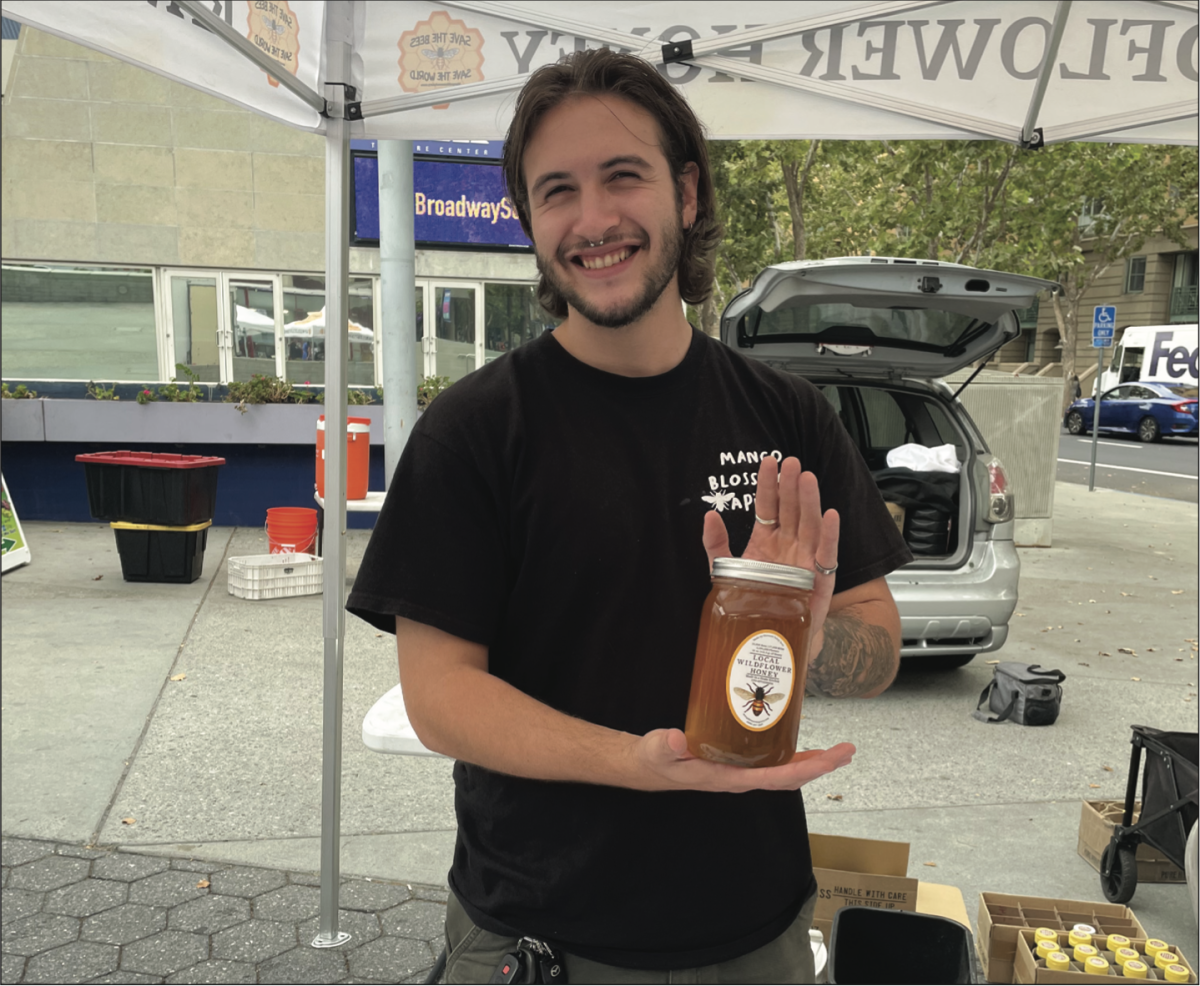
Shinju Kang
Gabriel Diaz, an SJSU third-year environmental science student, holds a jar of locally made honey.
The Downtown Farmers’ Market brings local food vendors, fresh produce and packaged goods to the San José community.
After being shut down for three years following COVID-19 pandemic restrictions, the market returned in April, according to an April 17 San José Spotlight article.
Located at the Hammer Theatre Center plaza and Paseo de San Antonio, current vendors range from asian vegetables to artisanal baked goods and empanadas.
Gabriel Diaz, a third-year environmental science student, is a beekeeper and chandelier for Mango Blossom Apiary.
“We do urban beekeeping all around the San José area,” said Diaz. “We live in San Jose, I live in San Jose and we do our own bottling beekeeping extraction.”
The environmental impact of locally produced foods is lower because they support better farming practices with reduced pesticide use, organic farming methods and less transportation
needed, according to a May 31, 2022 Sustainable Agriculture Network article.
Local farmers markets are important as they can help provide the population to improve their health, connect with their local community and boost the local economy, according to a March 10 article by the University of Wisconsin-Madison.
Quoc Bao Nguyen, a third-year criminology student, was with the apiary and came to support Diaz.
“My girlfriend, she’s in Santa Barbara and she really likes honey and stuff, so I brought her some San José honey and she really likes it,” Nguyen said.
Among the products the company offered was liquid honey, comb honey and honey candles.
The Downtown Farmers’ Market was a staple to the downtown community since 1993 before it’s pause in 2022, according to the City of San Jose webpage.
Diaz said he thinks it is helpful having a resilient food system where all the food is grown locally in San Jose.
Robert Ramos, an employee at Ken’s Top Notch, feels the market’s current location is working a lot better for the business.
“This farmers market before was originally at San Pedro Square (Market) and then it moved down to First Street, and that location did not work,” said Ramos.
Ken’s Top Notch farm has 250 acres growing organic seasonal fruit in the Central Valley, according to the Pacific Coast Farmers’ Market Association webpage.
Buying local produce is higher quality as it is fresher and more nutritious and does not lose its nutritional value as they do not have to travel long distances after being harvested, according to the same Sustainable Agriculture Network article.
“I think the biggest thing is that we’re producing in the area that we live, feeding people that live around this area. The carbon footprint, like gasoline and the transportation, is a lot lower because we’re here already,” Diaz said.
“I think it’s helpful to have a resilient food system, meaning all your food is grown here. If something happens to a supply line or chain, you’re okay because you have, you know, capabilities to grow your own food,” Diaz said.